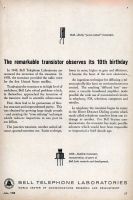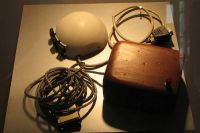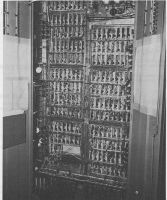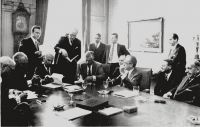Those Anniversaries We Love ... And Those We Avoid...

A quick glance at the calendar reminded me the other day that my family birthdays' season is starting up in as every year... This got me to think about the computing birthdays passed during the last decade or so... A quick stroll on-line and so we have had so far, at least, those of:
- the transistor, born 1948, just passed its 60th,
- the 50th of the Manchester transistor computer, of 1st run on November 16th 1953,
- the 25th of the computer virus, born July 1972,
 - the 35th anniversary of the internet on October 29th, 2004,
- the 35th anniversary of the internet on October 29th, 2004,
- the 50th and 60th of the Manchester Baby Mark I, official birth date on June 21st 1948,
- the 40th of the mouse, born 1968,
- the 50th of the EDSAC computer, officially born May 6th 1949,
- the recent 50th of the SENAC-1, born 1959,
 - the 30th of the Apple II, born 1977,
- the 30th of the Apple II, born 1977,
- the 25th of the PC, born August 12th, 1981,
- the 30th of the IEEE Annals of the History of Computing,
- the 30th of the CD, 1st available commercially in 1982, but started up in 1979,
- the 25th of the MAC and PC, born respectively 1984 and 1981,
- etc, etc,
 - and, not to forget the 50th and 60th of the venerable primes of the primes of computing, our very own ENIAC and EDVAC, and all the prestigious galas that took place all around it.
- and, not to forget the 50th and 60th of the venerable primes of the primes of computing, our very own ENIAC and EDVAC, and all the prestigious galas that took place all around it.
To be fair, this is a quite impressive list and palmares for a technological topic of which history is still largely institutionally unstable in most parts of the world. In other ways, I am quite uncomfortable with these lists of dates and birthdays, that, many narratives tell us, are landmark of a technology that revolutionised modern life (1). Is this all that the history of computing is made of? I cannot help but hope not.
How sad would that be that all that it took for computing to take the world by storm is simply to exist? No... there must be more, more, especially, about the people behind the machines, and their spread and diffusion... And indeed, there is more. After 50 years or so of asking on why and how such enduring intensive side-effects from computerisation, we have accumulated tons of stories of people telling on vintage machines and practices, stories that one finds in the 'looking back' columns in Computer, in Data News, in the biography and obituaries section of the IEEE Annals of the History of Computing..., etc. These are all stories expanding on those anniversaries of successes and achievements we - well 'we' as their initiators - are so proud to celebrate (2). And every death of yet another pioneer is another occasion to note out how our past is glorious and worth remembering, as for instance recently with the death of David Caminer, pioneer of business computing.
 There are also all those lesser prestigious, shameful, anniversaries we wish were not, for instance that of the short-lived 1972-1975 Unidata consortium. Unidata was born in 1972, 1973 as for the official signature (3), between three European computer industrial partners, the CII (French), Philips (Dutch) and Siemens (German). Dreamt as a strong industrail partnership that would protect European markets from a diabolical IBM invation, Unidata soon collapsed however, was politically-murdered, some claim, and ended in 1975, barely three years after its official beginning. I may be misinformed but I do not recall any special anniversary celebrated for the 25th of the UNIDATA signing up... I find it annoying. I keep being told that one learns from one's mistakes. So when will we start being proud of these mistakes and failures that also pave the history of computing?
There are also all those lesser prestigious, shameful, anniversaries we wish were not, for instance that of the short-lived 1972-1975 Unidata consortium. Unidata was born in 1972, 1973 as for the official signature (3), between three European computer industrial partners, the CII (French), Philips (Dutch) and Siemens (German). Dreamt as a strong industrail partnership that would protect European markets from a diabolical IBM invation, Unidata soon collapsed however, was politically-murdered, some claim, and ended in 1975, barely three years after its official beginning. I may be misinformed but I do not recall any special anniversary celebrated for the 25th of the UNIDATA signing up... I find it annoying. I keep being told that one learns from one's mistakes. So when will we start being proud of these mistakes and failures that also pave the history of computing?
(1) Moreau, R. (1984), The Computer Comes of Age (MIT Press, 1st ed. in French: 1981), 3: Moreau comments interestingly on the how and why of historians' fascination for dates.
(2) Lavington, S.H. (1980), Early British Computers. The Story of Vintage Computers And The Men Who Built Them (Manchester UP).
(3) Dallemagne, B. (2001), Histoire de la CII, http://www.feb-patrimoine.com/projet/histoire_informatique/histoire_cii_1972-1975.htm

